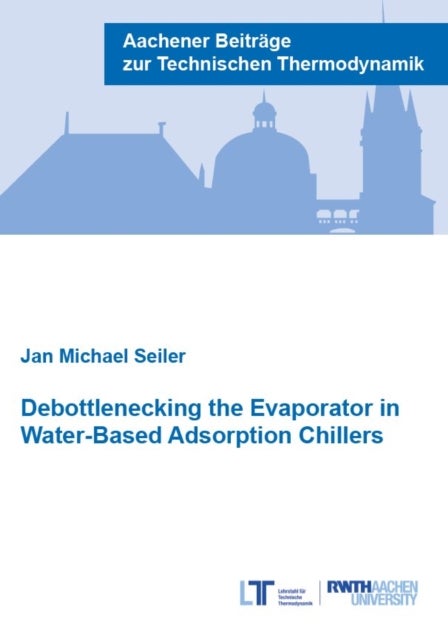
Debottlenecking the Evaporator in Water-Based Adsorption Chillers av Dr Jan Michael Ph.D. Seiler
471,-
<p>Global cooling demand continues to grow. To mitigate the resulting environmental impact, cooling solutions need to be sustainable. Adsorption chillers can provide sustainable cooling as they can employ both environmentally friendly driving forces such as solar or waste heat and the natural refrigerant water.</p><p>Water offers many advantages as refrigerant: its global warming potential is zero, it is absolutely safe, cheap, broadly available and has a high enthalpy of vaporisation. However, there are also challenges to employ water as refrigerant in cooling applications. On the one hand, efficient sub-atmospheric evaporation of water is challenging. On the other hand, the freezing point of water limits its operational range to temperatures above 0¿C, thereby excluding many cooling applications. Both bottlenecks of the natural refrigerant water are addressed experimentally in this thesis: (I) Sub-atmospheric, thin-film evaporation of water enables efficient heat transfer and is inve








